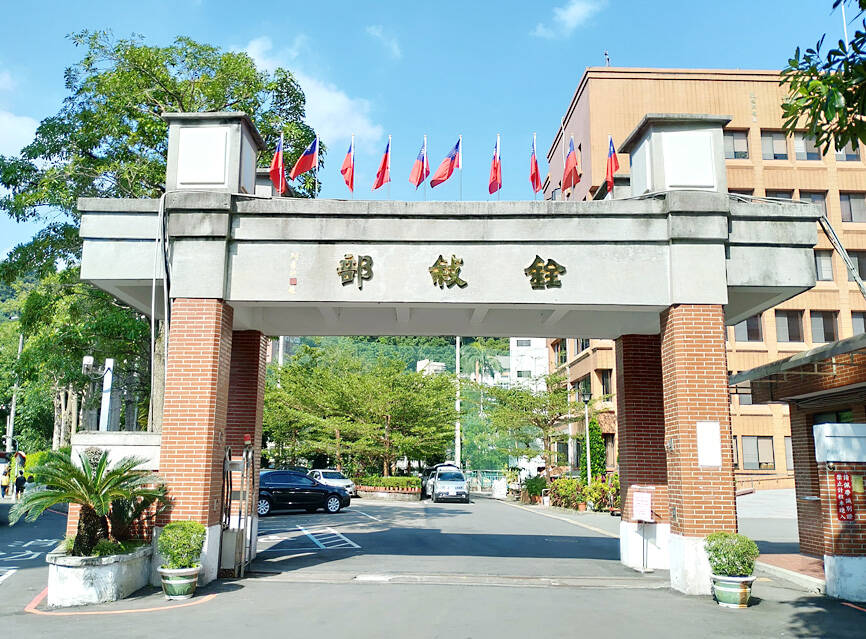The government would have injected NT$220 billion (US$7.1 billion) into the Public Service Pension Fund by the end of next year since a new pension fund system was launched in July 2018, government data showed.
The Public Service Pension Fund would receive revenue of approximately NT$150.6 billion next year, up 10.92 percent from this year and 24.25 percent from last year, based on the Executive Yuan’s budget plan for next year.
The main reason for the increase is an additional NT$10 billion as a result of a program to streamline the military.

Photo courtesy of the Ministry of Civil Service
“The new pension fund system would help save NT$210 billion by the end of next year since it was implemented in July 2018. When the additional NT$10 billion is added, the government would have injected a total of NT$220 billion into the fund,” the Executive Yuan said.
The new Public Service Pension Fund system required government workers to raise their contribution by 1 percent from 2021. By this year, the contribution rate had been raised to 15 percent.
The new system also reduces civil servants’ income during retirement, as well as the special interest rates for their savings.
Data from the Public Service Pension Fund Supervisory Board showed that pension reform and the Ministry of National Defense’s program to streamline the military helped save NT$24.07 billion in 2020, NT$38.68 billion in 2021, NT$42.17 billion last year and NT$51.164 billion this year. It is projected to save NT$53.9 billion next year.
All those funds have been injected into the Public Service Pension Fund.
Although the number of people joining the pension fund system increased from 622,197 in 2013 to 671,550 in 2020, the number fell to 665,805 last year.
As the new pension fund system automatically applied to government workers joining the system after July 1 this year, the scale of the fund would definitely be affected by the decrease in the number of people joining the new system, the Executive Yuan said.
The number of people regularly withdrawing from the Public Service Pension Fund rose from 212,943 in 2011 to 386,800 last year, while the amount regularly withdrawn surged from NT$35.77 billion in 2011 to NT$102.34 billion last year.
By 2019, more than 95 percent of the Public Service Pension Fund had been used to pay retirement funds to civil servants.
The budget for payments from the Public Service Pension Fund next year is forecast to increase 5.65 percent to NT$ 118.64 billion, the government data showed.
The budget is expected to increase as average life expectancy rises, the Executive Yuan said.

Seventy percent of middle and elementary schools now conduct English classes entirely in English, the Ministry of Education said, as it encourages schools nationwide to adopt this practice Minister of Education (MOE) Cheng Ying-yao (鄭英耀) is scheduled to present a report on the government’s bilingual education policy to the Legislative Yuan’s Education and Culture Committee today. The report would outline strategies aimed at expanding access to education, reducing regional disparities and improving talent cultivation. Implementation of bilingual education policies has varied across local governments, occasionally drawing public criticism. For example, some schools have required teachers of non-English subjects to pass English proficiency

‘FORM OF PROTEST’: The German Institute Taipei said it was ‘shocked’ to see Nazi symbolism used in connection with political aims as it condemned the incident Sung Chien-liang (宋建樑), who led efforts to recall Democratic Progressive Party (DPP) Legislator Lee Kun-cheng (李坤城), was released on bail of NT$80,000 yesterday amid an outcry over a Nazi armband he wore to questioning the night before. Sung arrived at the New Taipei City District Prosecutors’ Office for questioning in a recall petition forgery case on Tuesday night wearing a red armband bearing a swastika, carrying a copy of Adolf Hitler’s Mein Kampf and giving a Nazi salute. Sung left the building at 1:15am without the armband and apparently covering the book with a coat. This is a serious international scandal and Chinese

TRADE: The premier pledged safeguards on ‘Made in Taiwan’ labeling, anti-dumping measures and stricter export controls to strengthen its position in trade talks Products labeled “made in Taiwan” must be genuinely made in Taiwan, Premier Cho Jung-tai (卓榮泰) said yesterday, vowing to enforce strict safeguards against “origin laundering” and initiate anti-dumping investigations to prevent China dumping its products in Taiwan. Cho made the remarks in a discussion session with representatives from industries in Kaohsiung. In response to the US government’s recent announcement of “reciprocal” tariffs on its trading partners, President William Lai (賴清德) and Cho last week began a series of consultations with industry leaders nationwide to gather feedback and address concerns. Taiwanese and US officials held a videoconference on Friday evening to discuss the

PERSONAL DATA: The implicated KMT members allegedly compiled their petitions by copying names from party lists without the consent of the people concerned Judicial authorities searched six locations yesterday and questioned six people, including one elderly Chinese Nationalist Party (KMT) member and five KMT Youth League associates, about alleged signature forgery and fraud relating to their recall efforts against two Democratic Progressive Party (DPP) legislators. After launching a probe into alleged signature forgery and related fraud in the KMT’s recall effort, prosecutors received a number of complaints, including about one petition that had 1,748 signatures of voters whose family members said they had already passed away, and also voters who said they did not approve the use of their name, Taipei Deputy Chief Prosecutor